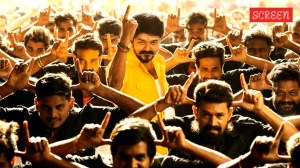Who Wrote to George Edalji?
At its centre is the nomination of four of the young new talents of the 1980s: Salman Rushdie Shalimar the Clown, Julian Barnes Arthur ...

At its centre is the nomination of four of the young new talents of the 1980s: Salman Rushdie Shalimar the Clown, Julian Barnes Arthur 038; George, Ian McEwan Saturday and Kazuo Ishiguro Never Let Me Go. Yes, these are deserving novels, goes the thread, but what does it say about the state of English literature when between them the Big Four monopolise all the anticipation about the prize two decades on?
It is a personality-driven quarrel that misses the substance. This has been a good year for the novel. From just three of these writers, we have been presented with novel ways of understanding the present. Ian McEwan, in arguably his best work so far, has employed the novelist8217;s greatest resource 8212; imagination 8212; to cohere today8217;s twin phenomena: fierce identity politics and thesecession of the successful. Ishiguro places the future in a familiar past to inquire into what it means to be human.
And Barnes returns to a little remembered episode in Arthur Conan Doyle8217;s life to understand the making of the modern mind. And at a time when Britain is struggling to understand the essence of its Britishness, he makes a valuable contribution by detailing the attempted mainstreaming of his two main characters. Through it all, a very Barnesian chill carries the narrative forward.
At the heart of the story that brings Arthur and George, two very different men, in contact is a minor crime sensation of the turn of the last century, what became known as the Great Wyrley Outrages. For this assault on animals, George Edalji, a solicitor, was convicted in 1903. Earlier he had had suspicion turned on himself by the police when he and his vicar father complained that they were regularly receiving obscene letters. From the very beginning they suspected that it had something to do with Edalji Sr8217;s Indian origins, for he was a Parsi convert to Christianity.
In a narrative that runs in tandem 8212; George and Arthur8217;s stories constantly moving back and forth 8212; Arthur is constantly seeking to square the materialism and rationalism that carry him to literary fame with the pull of mysticism. For George it is an even more uneasy balance: the faith his father instructed him to keep with the British empire colliding with experience. Can one believe what one cannot prove?
Through meticulous research Barnes addresses that question through these two very different persons. And a century on, the question is bounced off with more than a wink.
- 01
- 02
- 03
- 04
- 05































